Articles Menu
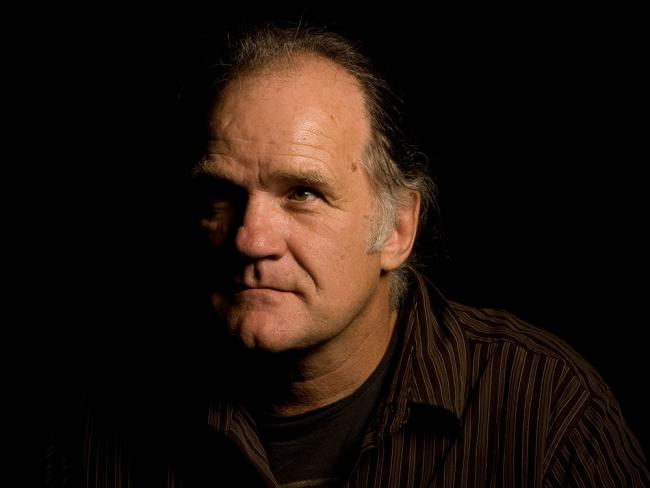
Apr. 27, 2022
Climate protesters have been in the news a lot recently, defying long-standing injunctions they say benefit corporations and snarling traffic to raise awareness for their campaigns.
Many of these protesters are volunteering to be arrested during protests and are facing ever-increasing punishments handed down by the courts. Protesting the Trans Mountain Pipeline Expansion project used to land you a $500 fine. Now it can lead to weeks in jail.
As sentences are getting more severe, so are the impacts of climate change. Take 2021 as an example: B.C. faced back-to-back fatal extreme weather events in the form of heat waves, drought, wildfires, rainfall and flooding.
Despite this, the majority of British Columbians are going about their daily lives — except for these protesters. Which prompts some questions: What drives them to risk fines and jail time? What do they see that the rest of us are overlooking?
The Tyee reached out to several protesters on the frontlines of local climate and Indigenous land sovereignty protests for their thoughts on climate change, the role of civil disobedience and their experience behind bars.
Zain Haq, 21-years-old, nine days in jail
Zain Haq first started paying attention to climate change as a teenager during the 2015 heat wave that killed about 1,300 people in Pakistan, his home country.
He moved to Canada three years ago to attend Simon Fraser University and connected with climate protesters at a 2019 Extinction Rebellion protest.
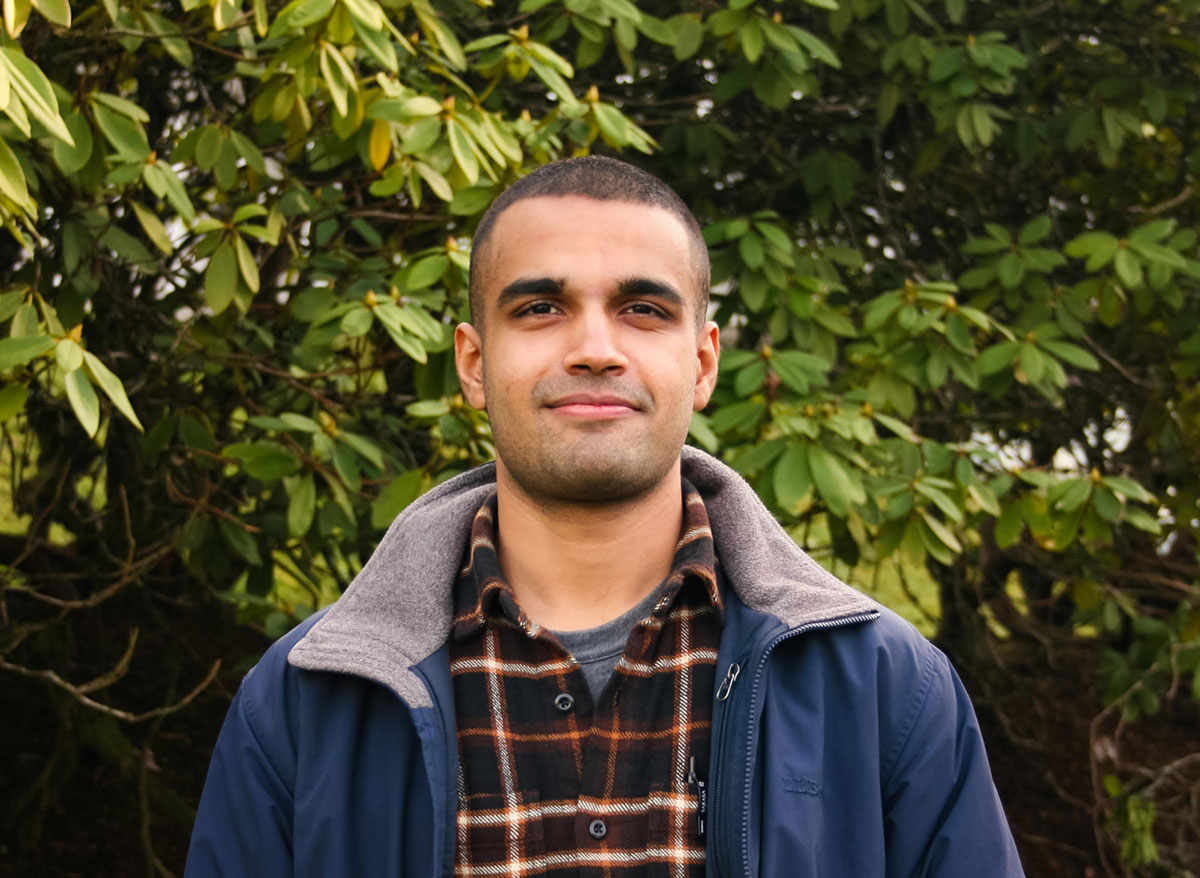
“The way I see it is that climate change is not about polar bears, penguins or even the environment,” Haq says. “I see it as meaning extreme suffering for people I care about in the next 15 to 20 years. The potential for running out of food to crop failure to being shot at in the supermarket because there isn’t enough food. It’s that horror of societal collapse and being able to deeply imagine how bad it is that drives me to risk arrest.”
Haq is involved in several climate organizations including Save Old Growth, which is currently campaigning to end old-growth logging in B.C. by the end of June.
The campaign is inspired by the Freedom Riders, where 13 people managed to end segregation on buses in the U.S.
By normalizing arrest, protesters show the government they are not afraid and will not back down, he says. This takes power away from the government and gives it to the people.
“We don’t have time to fail and try again later,” Haq says. He points to how experts say humanity has about three to four years left to take action on climate change and limit global warming to 1.5 C.
“We have to quit our jobs and make civil disobedience our full-time job,” he says.
Going to jail isn’t the end of the world, he adds — the end of the world is the end of the world.
Black Bear Warrior, 67-years-old, 14 days in jail, facing an additional 70-day sentence
Black Bear Warrior was born in Ontario on the Six Nations reserve to an Anishinaabe mother but was kidnapped at four-years-old and put into foster care as part of the ’60s Scoop.
He reconnected with his Indigenous identity in 1979 when he moved to B.C. and fell in love with the landscape. Back then you could canoe up Indian Arm in October and the water would be thick with the flashing scarlet of salmon, he says.
Black Bear Warrior worked in the Downtown Eastside for 18 years as a social worker. He also spent many years as a Sundancer, running sweat lodges, reconnecting with his culture and learning from Elders.
As a Sundancer you put your body between danger and your community, he says.
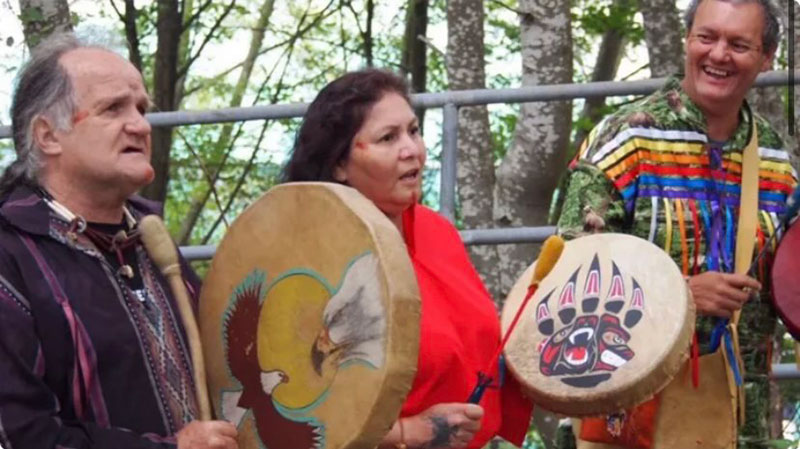
So when an Elder asked him to bring culture and storytelling to a protest camp on Burnaby Mountain, he went.
He also wanted to protest the “absolute disrespect” the government showed First Nations on their unceded traditional territories.
The camp was set up to protest the Trans Mountain Pipeline Expansion project, then owned by Kinder Morgan. This led to the building of Kwekwecnewtxw (“Watch House” or “a place to watch from” in the hən̓q̓əmin̓əm̓ language) where Black Bear Warrior took on the role of Elder of the Watch House.
One judge said this role means he could walk freely in the injunction zone. Another said he couldn’t. Black Bear Warrior is currently appealing his additional sentencing.
“Jail was horrific,” he says. Close to half the inmates were Indigenous, COVID-19 restrictions put inmates in isolation but didn’t offer them masks, and he wasn’t able to access critical medication for his heart and pancreas for four days. “It’s only by the grace of God I’m still standing,” he says.
But his fight isn’t over. “If I have to get arrested again then I’ll get arrested again. My orders come from my Elders not from the courts or the prime minister’s oil lobby,” he says.
This fight is about building a world that is sustainable instead of abandoning our children to a world that is horrific, he says.
Catherine Hembling, 80-years-old, 14 days in jail
Catherine Hembling grew up in West Vancouver in a family of skiers, berry pickers and boaters. Today, she hikes in the mountains and kayaks “for sustenance.”
Hembling started noticing a change in Rocky Mountain glaciers 15 to 20 years ago during summer trips, and realized we were in a crisis when the UN Intergovernmental Panel on Climate Change report said the world has 12 years to act to avoid catastrophic climate change.
She’s a member of the Unitarian Church and a Buddhist, practicing Vipassanā meditations and following the teachings of the Vietnamese monk Thích Nhất Hạnh. This meditation practice helped her while in jail, she says. A light sleeper, she was unable to sleep for more than half an hour at a time.
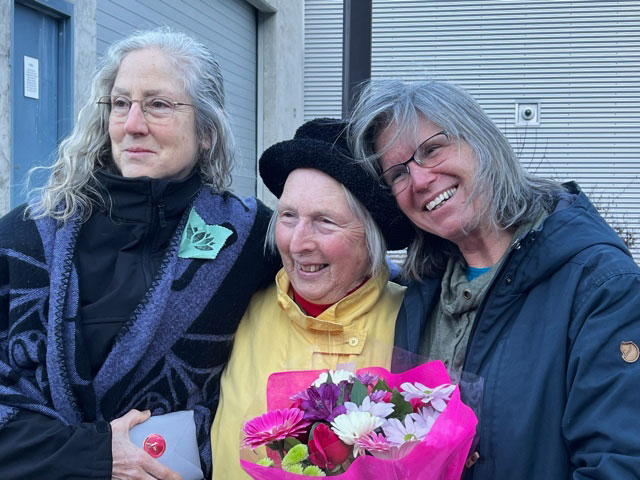
Hembling has been involved with environmental organizations for the last six years and has leveraged her privilege to meet with politicians and tell them about her concerns about the environment, TMX and fish farms. She says politicians were often receptive but they are just one small piece of a system that is in “desperate need of reform.”
She joined Protect the Planet, Stop TMX in August 2020 after visiting their tree sit. The tree sitters’ gear reminded her of her mountaineering days. “I said, these are my people. I can’t climb anymore but I can support them,” she says.
She was arrested for crossing the injunction line, sitting down and refusing to leave.
Prison was “enlightening” because you can see how five out of every 12 inmates are Indigenous, and every one out of six have mental health issues, she says.
She considers her time in jail a “small price to pay.”
Hembling was released from jail the day before her 80th birthday. To celebrate her freedom she slapped on some snow shoes and headed up the mountain for a hike in the sunshine.
“We’ve seen the destruction caused by climate change and it’s only going to get worse,” she says.
“We’ll look back at this time in history and see how fossil fuel companies had the ear of the government and curse them.”
Ruth Walmsley, 61-years-old, 14 days in jail
Ruth Walmsley is a a member of the Vancouver Quaker community who says it is her sacred duty to “do everything I can do to leave the world in a way that can support life.”
As long-time activist, this is Walmsley’s third time being arrested — she was also involved in civil disobedience during the Clayoquot protests in the ’90s defending old-growth forests and again in 2014 protesting Kinder Morgan — but this was her first time in jail.
Taking action and being arrested is the strongest way she could make a statement about how “we cannot be expanding this fossil fuel infrastructure during a climate emergency,” she says. She’s terrified there’s little time to avoid catastrophic climate change, and motivated by the fact the the world is on course to hit 4 C of warming by 2100.
The colonial justice system is a “black hole” that promotes justice for corporations and punishes people and organizations fighting to protect species from extinction, she says.
For Walmsley, jail was “an experience in sacrificing personal autonomy — but bearable.” When you arrive you are X-rayed for contraband and even your hair elastics are taken away, she says. The lights never turn off, just dim, and you have to go to the washroom on a stainless steel toilet in full view of anyone walking by.
But Walmsley says she adjusted and learned how to request things like books, a yoga mat and extra blankets.
By the end of her sentence she and fellow protesters Catherine Hembling and Janette McIntosh (who were arrested at a similar time and served similar sentences) were leading sing-alongs with inmates.
Walmsley, Hembling and McIntosh have formed a singing trio, called the Alouette Sisters, and they will be speaking and singing for other faith groups to raise awareness about the climate emergency.
“I hope to inspire others to take action,” she says.
Bill Winder, 69-years-old, 21 days in jail
Bill Winder is an American Canadian who taught French at the University of British Columbia for 31 years. He retired in 2020 and is now a full-time activist.
Winder was first drawn to act in 2014 when Kinder Morgan started drilling on Burnaby Mountain and the local fire department warned an earthquake could cause a fire that could threaten Simon Fraser University and the surrounding community.
Winder was arrested at the Brunette River tree sits that blocked TMX workers from cutting down trees to build the pipeline. RCMP officers waited until two days after the federal election to arrest him, highlighting the political nature of the arrests, he says.
Watching climate change unfold is a bit like being a parent and seeing your toddler running towards a busy street, he says.
There have been 26 UN Climate Change Conferences and for 25 of them politicians didn’t use the word “fossil fuels,” he says.
“Anyone who understands politics knows that’s because government is captured by industry and industry wants to make money — therefore they will ignore the science.”
That panics him just as much as the 600 British Columbians and billions of sea creatures who died in the June 2021 heat wave, the Lytton seniors who burned to death during the 2021 wildfires, the flooding of Sumas Prairie and the “250,000 people” who are at risk of toxic gas exposure with the looming prospect of a catastrophe at the Trans Mountain Burnaby tank farm.
“I don’t know why I wouldn’t get arrested again,” Winder says.
Going back to the toddler in traffic metaphor, he says science is telling society we must “run as fast as we can” to save the child. But at the same time “government is watching the toddler head towards the street and is doing nothing.”
April Thomas, 46-years-old, pending jail time
April Thomas is a Secwépemc matriarch who uses her knowledge of traditional lifestyles and the colonial court system to build a better world for her children.
“They need the water, land, air, animals, birds — it’s all part of the food chain and part of Mother Earth,” she says. “When I see Mother Earth being destroyed I see my children’s future being destroyed.”
Thomas has three children, 10 grandchildren and scores of nieces and nephews. Working to build a better world for them will also have a ripple effect for her people, she says.
Thomas is a member of the Canim Lake Band, one of the 17 Secwépemc First Nations located in the Central Interior of B.C. “We were once the mighty Secwépemc, but colonialism divided us and made us fight.” She says every week they’re losing two to three members to cancer, COVID-19, suicide, drugs or alcohol.
“That’s why we’ve got to get together to do good and create that ripple effect,” she says.
Thomas opposes TMX, which puts her at odds with her band — but says she has to be true to the life she was meant to lead, which is as a protector of the land.
She was arrested in October when acting as a legal observer at a protest aimed at stopping TMX drilling under the Thompson River. A spill would create a “great threat” to that region’s salmon, she says.
Thomas and eight others were arrested and put in jail for eight hours, and then released. The courts have not yet clarified if the charges against them are civil or criminal, which have different proceedings in court, she says. Because of this ambiguity she has been able to delay the court date several times.
Thomas says she’ll keep showing up in court and pushing back against colonial and environmental injustices. She plans to call a meeting with her people to ask for direction and guidance from matriarchs, Elders and hereditary leaders.
Errol Povah, 69-years-old, facing 60 days in jail
Errol Povah spent 30 years with BC Ferries as a second navigating officer and 20 years with the Sea Shepherd Conservation Society. With Sea Shepherd, Povah travelled to Antarctica to shut down illegal whaling fleets, to the Faroe Islands to protect pilot whales and to the Sea of Cortez to protect the endangered Vaquita porpoise.
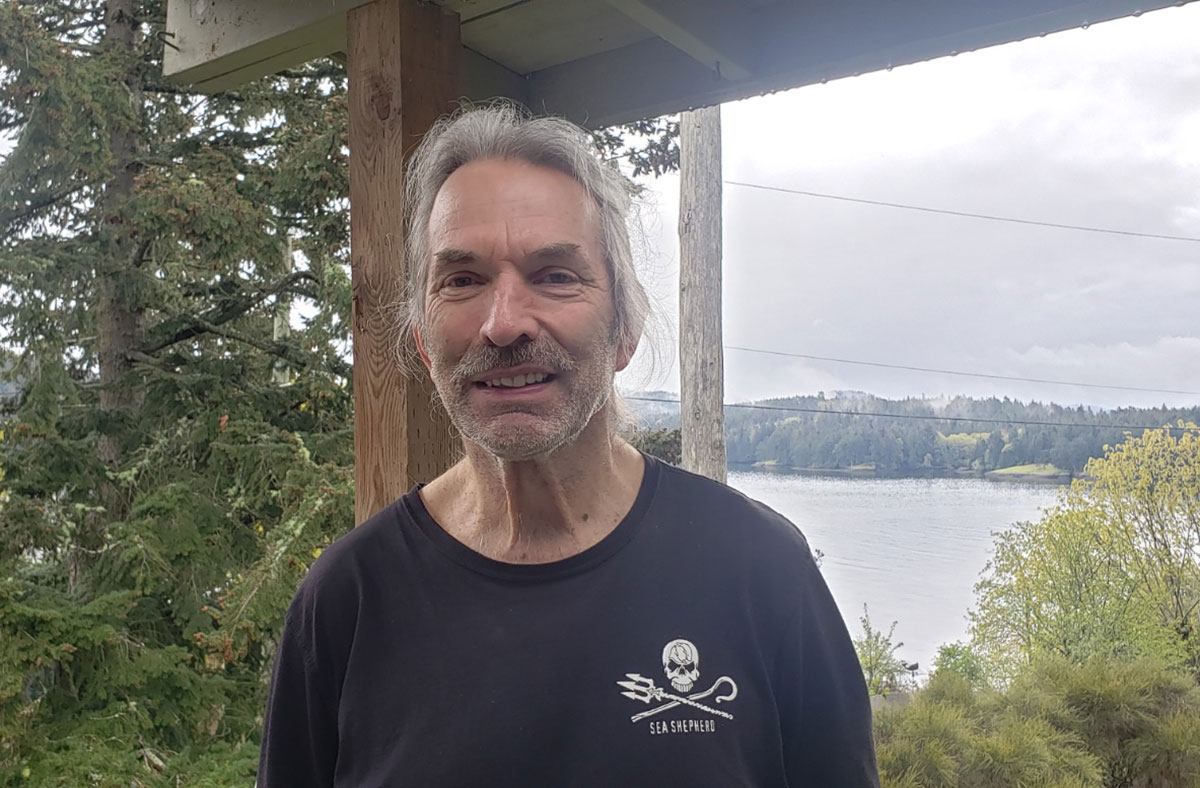
Povah began paying closer attention to the Kinder Morgan pipeline during the March 10, 2018, march on Burnaby Mountain — which was the first time Povah was arrested for blocking a gate within the injunction zone. Povah was sentenced to 150 hours of community service, and served it onboard the Sea Shepard.
“It was tempting to tell the judge, ‘your honour, I was serving community service when I was arrested,’ but I bit my tongue,” Povah says.
Last spring Povah was arrested again while violating the Trans Mountain injunction by delaying construction. Povah was locked in a sleeping dragon that blocked the movement of construction-related machinery. A sleeping dragon is a delay technique where one or more protesters lock a limb in a device that conceals the locking method; police then have to be brought in to extricate the protesters from the device.
Povah is facing 60 days in jail.
Just because something is the law doesn’t mean it’s right — and doesn’t mean it can’t be changed, Povah said.
During the sentencing trial Povah asked the judge for 1,000 hours of community service. “The judge indicated community service hadn’t worked as a deterrent before,” Povah says.
“I speak for myself and many colleagues — we’re on the right side of history and no amount of jail time is going to deter us.”
[Top photo: ‘If I have to get arrested again then I’ll get arrested again. My orders come from my Elders not from the courts or the prime minister’s oil lobby,’ says Black Bear Warrior. Photo by David Cooper.]